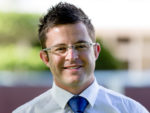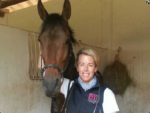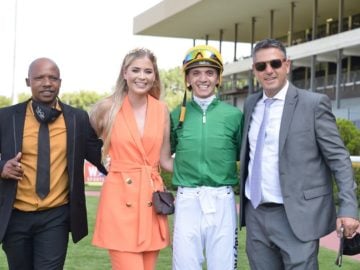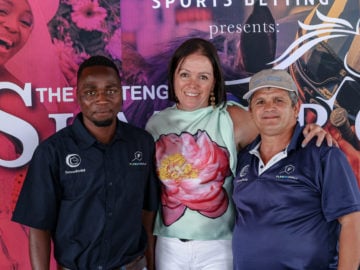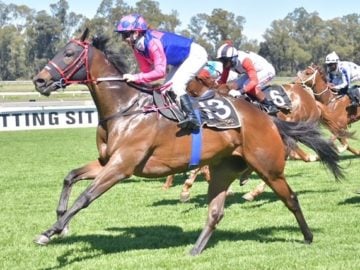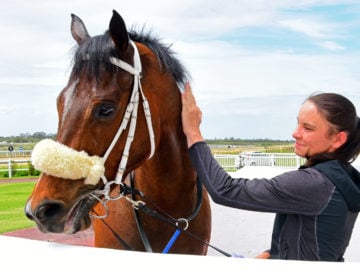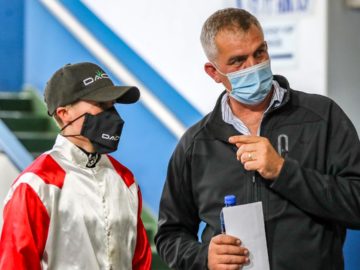Jockeys are the only professional sportsmen on earth who don’t enjoy the formal guidance and mentorship of coaches.
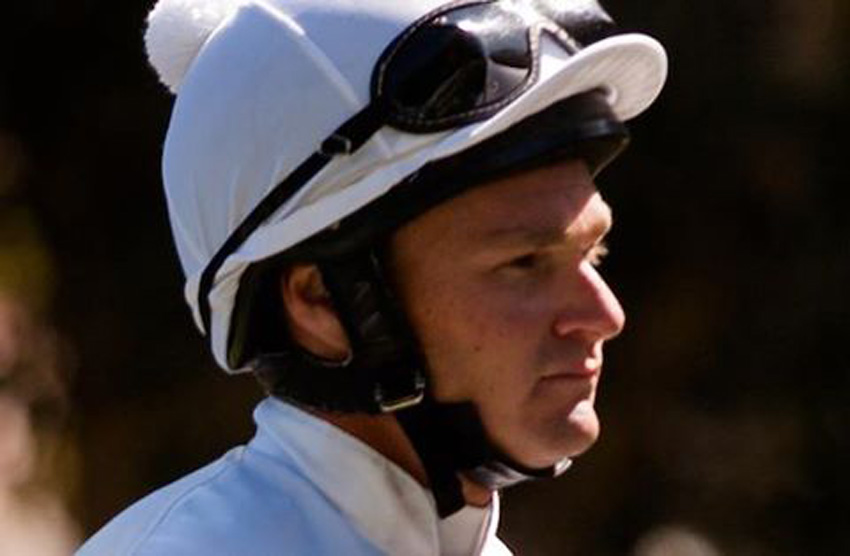
Craig du Plooy – getting into the game
It’s a subject close to the heart of Western Province Groom School Riding Master Craig du Plooy, who experienced the benefits of a champion ‘personal trainer’ first hand in his own career just three years ago.
At the age of 40, and after close on a quarter of a century in the saddle, with seven years experience of training workriders, Craig couldn’t have been blamed for imagining he had mastered race-riding and the broad technicalities of horsemanship.
That was until the day Justin Snaith introduced him to a mentorship under a champion jockey, known affectionately to his legion of fans as ‘Felix The Cat’.
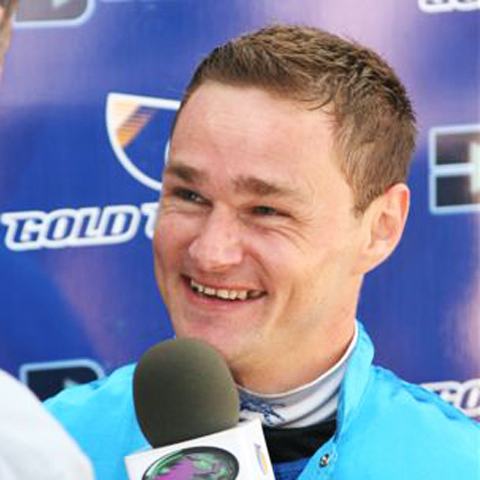
Craig du Plooy’s winning smile
Now 43 years old, and with 28 years in the saddle, and a veteran of 11 years of training workriders, the likeable Craig du Plooy talks freely about an educational adrenaline rush of pure inspiration that changed his life.
Felix Coetzee rode 3508 winners and was crowned SA Champion three times. He won 75 Gr 1 races internationally.
“The Snaith operation is one of the most professional outfits I have had the fortune of being associated with. I was working good horses and race-riding for them when they suggested that I get Felix Coetzee to work with me and see what he could add to my technical skill set,” tells Craig.
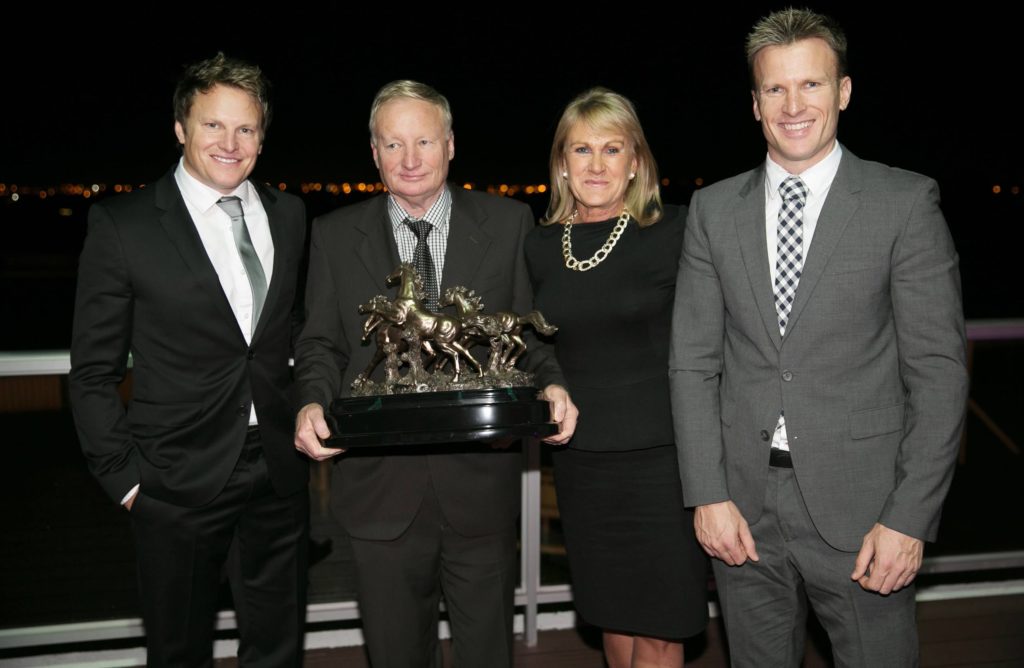
Snaith Racing – professionalism in action
“What a pleasant wake-up call! I found out exactly why he was one of the greatest riders of the modern era. Felix is the consummate professional. I learnt so much – my only regret was that I hadn’t gotten the opportunity ten or fifteen years earlier. It would have changed my life!” he says with unveiled admiration.
He reflects how he was coaxed and guided to a new level of performance.
“Felix Coetzee’s drive and work ethic is something extraordinary. His attention to fine detail and commitment is unbelievable. I am talking technical basics – like riding two holes higher in the stirrups. Leaning forward slightly. Holding your whip in a different position. Right down to a fitness regime second to none. Simply put – a mindset of winning!”
Craig said that one practical example that struck him was that Felix coached him to ‘get into the game’ when arriving at races.
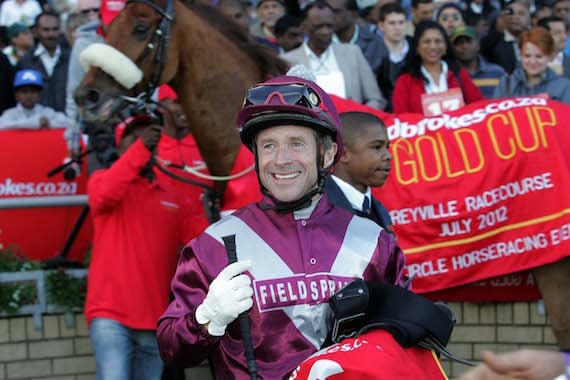
Master Jockey – Felix Coetzee
“Riding is a job, like any profession that one works at every day. But Felix got me to focus. On the way to the start. Circling at the start. Focus and more focus. And small talk, and banter with colleagues was for later. I am a sociable and friendly guy. But I didn’t need to change my personality – just a behavioural tweak. When I tried Felix’ approach, I found I was getting horses out quicker and into better positions. I was a better jockey – by actually doing very little tangibly differently!”
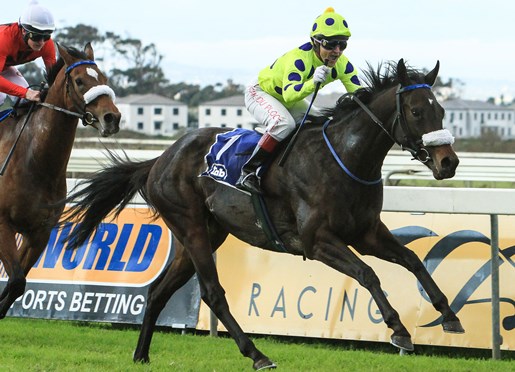
Craig guides Cat And The Moon to win the Final Fling Stakes
Craig says that jockeys are trained at a world-class institution like the SA Jockey Academy, then qualify and are left to their own devices. But after his experience with Felix, it has been driven home that achievement at the top level is a very real technical and mind game.
He points out that jockeys develop styles early on and then generally stay loyal to that. Human nature means habits are tough to break. And while the Stipes may point out direct interference and race incidents, technical training is not their brief.
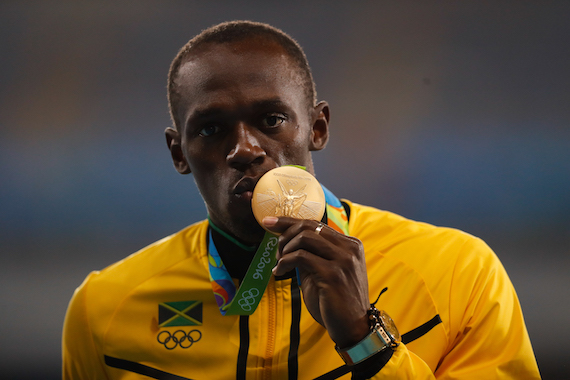
Usain Bolt (photo: Fernando Frazão/Agência Brasil)
“One could never imagine a champion like Usain Bolt without a coach. That’s why even our top riders could do with a coach like Felix Coetzee.”
A Scottburgh High pupil, the slightly built Craig du Plooy entered the SA Jockey Academy in Grade 9.
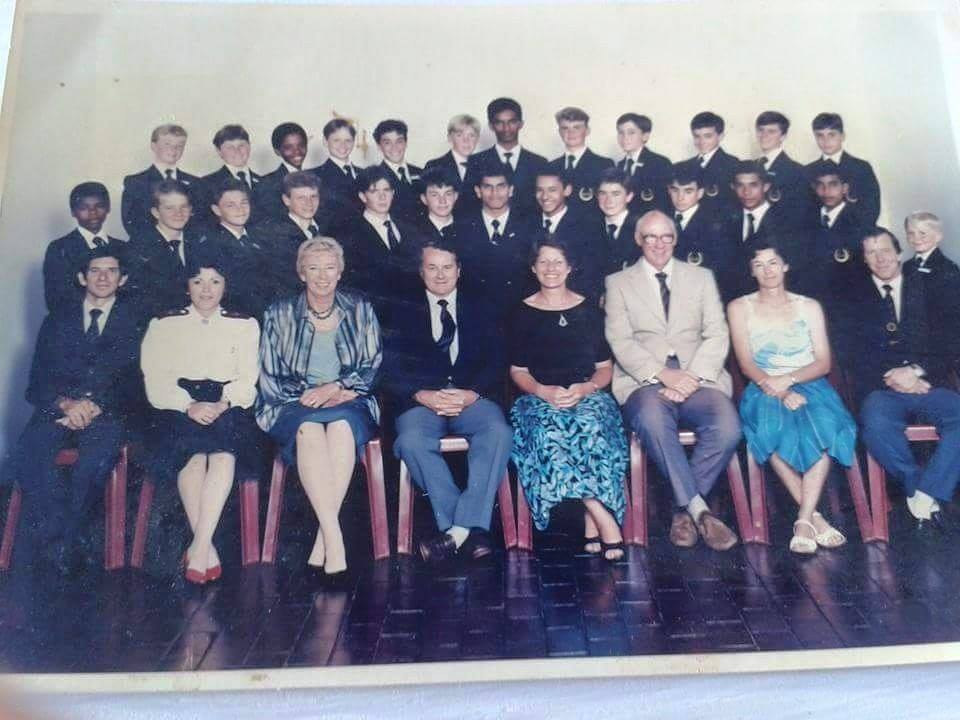
“I was small and loved sport and it seemed like a good idea,” he muses, recalling his top-class riding masters Kenny Michel, Vincent Curtis and David Cave.
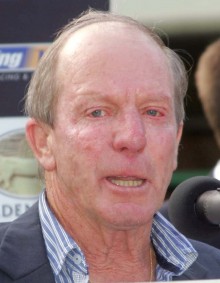
Vince Curtis – taught Craig
“They were such an experienced and seasoned group. We were in awe of them. The coaching and facilities were excellent. It was really tough being away from the comforts of home and the boarding school environment comes as a bit of a shock. But I only have great memories of the Academy.”
Craig rode his first winner on the Vaughan Marshall-trained Rotterdam colt Tokyo Bay on 6 July 1992 at Greyville. He had Jeff Lloyd, Anton Marcus – and coincidentally, a certain Felix Coetzee – trailing in his wake.
“That moment is a great thrill for any jockey. I won’t pretend I remember a lot about the race. I was a four-claimer and I jumped and led – and just stayed there. The rest is a blur! My whole family was on course and that was pretty special,” he adds.
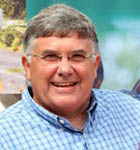
Vaughan Marshall – supported Craig
Craig was despatched to the Cape to complete his apprenticeship. He rode successfully for Glen Kotzen, Peter Muscutt and Vaughan Marshall.
He talks animatedly about his passion these days – coaching workriders.
“I have been doing the job for 11 years now. We were in Milnerton for the first 6 years and are now based in Philippi. We have six retired racehorses and I conduct lessons four days a week. I am so proud of my students. We keep in touch and I have seen some of them flourish and grow in stature. It is very rewarding work.”
Craig explains that the grooms that are able to ride usually do a three month course. Aldo Domeyer and Devin Ashby are two professional jockeys who cut their teeth in the Groom School.
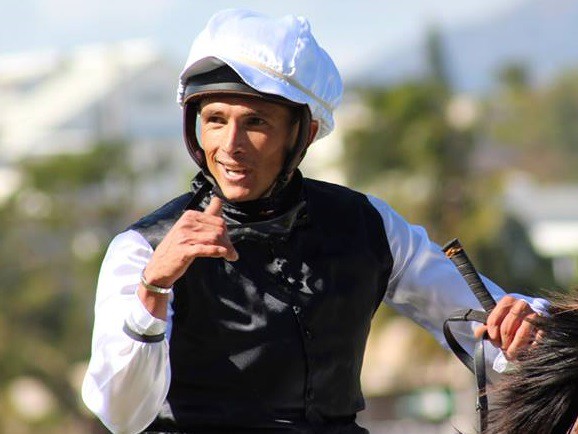
Devin Ashby – came up through the ranks
“I hone their skills. Teach them how to enter the starting gates. Use of the whip and other race specifics. And we go through the race riding rules. When I am satisfied that they are competent, I certify them to race ride. Then it is up to their trainers to give them a ride. That is a huge incentive and a very big day for these guys!”
The Cape only has one workrider race per month. They are all down the straight.
“We had our first race round the turn late last year. For an apprentice in a professional race, he has a whole group of experienced guys guiding him round first time. In our case we had a whole race of greenhorns trying to negotiate the turn! I would love to see more workriders races. Because practice improves skill – as we see in Gauteng. But I understand that it is a matter of programming and budget – and that’s not my side of things,” he adds.
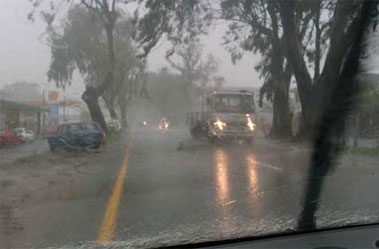
Cape winters can be unfriendly
He says that it takes a massive amount of commitment – more so in the Cape winter – to complete the course as the students start work before 5am and then attend classes from 09h30 to 1pm.
“We give them a lunch and then they are back to work in the afternoon. It’s a long day. It takes a lot of dedication. But it adds value to their careers and self confidence. And the trainers are right behind us, as there are never enough jockeys to do the work-riding in the mornings.”
Adrian Todd is Chairman of The Western Province Groom School and Craig says that things run very smoothly.
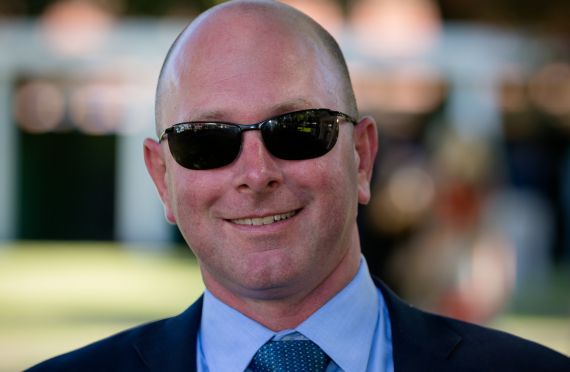
Western Province Groom School Chairman Adrian Todd 9Pic – Hamish Niven Photography)
“My six – all ex racehorses – enjoy a great life. They are well fed and groomed and perform an important role. The kit is mostly donated by jockeys. I am proud of our wooden ‘equisizer’ too. It serves a very useful purpose and is a handy training aid.”
Craig has not ridden for almost a year now.
Something of a Bionic Jock, he has fractured his spine, broken both his arms, his shoulder, his foot – a leg. The list is endless. He is currently suffering severe back pain. Diagnosed with a torn disc and degeneration, he is visiting his specialist again this week. He is reluctant to have an operation and has resorted to a variety of treatments. He knows that after an operation, he will probably take ages to recover and his future as a professional jockey would then be in serious doubt.
“I have done the Argus. I played league squash. I love sports. It has been a tough year of inactivity. If I didn’t have my job at the Groom School, I would have gone crazy!” he says, adding that his Wife and Son have been of great support.
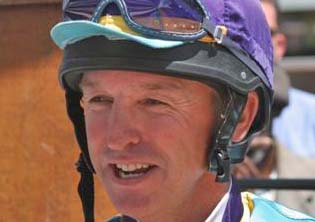
Karl Neisius – veteran
As he gets up to leave, he makes an interesting observation about the age demographic of the Cape jockey population.
“The generation of veteran iron men like Stanley Amos, Garth Puller and Karl Neisius may well be gone forever. At 43, I would currently be one of the oldest jockeys riding in Cape Town!”
‹ Previous
